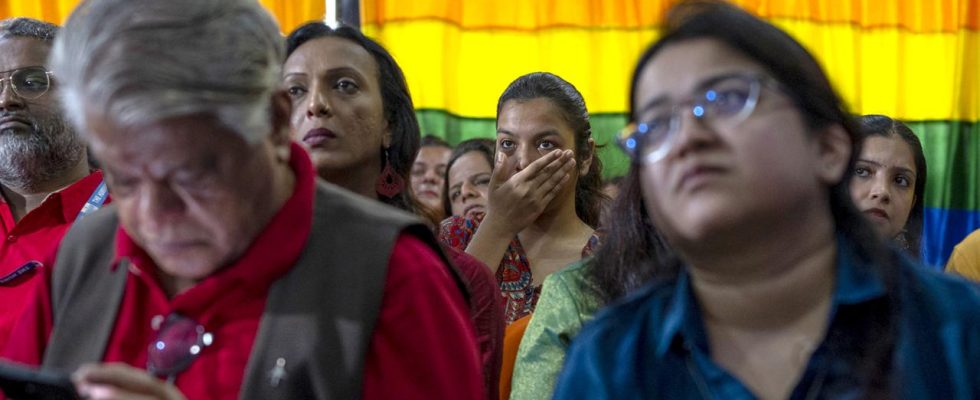In conservative India, same-sex couples are still not allowed to marry. The Supreme Court initially rejected legalization in the world’s most populous country. The judges see responsibility with the government.
In a highly anticipated ruling, India’s Supreme Court has initially rejected the legalization of same-sex marriage in the country. The judges argued that they had no power to open marriage to everyone – instead, Parliament was responsible for it.
The court now called on the government to create framework conditions for state acceptance of such partnerships. “Equality requires that people are not discriminated against based on their sexual orientation,” the court said. In addition, it is wrong to classify marriage as an unchangeable institution.
At the same time, the judges rejected the Indian government’s argument that the legalization of same-sex marriage was merely a demand of the urban elite. “Homosexuality or queerness is not an urban concept and is not limited to the upper classes of society,” it said.
Several couples had previously turned to the court to obtain legal regulation in patriarchal India. They argued, among other things, that marriage was important to them because it included important rights such as joint bank accounts, inheritance or adoption.
More visibility, more acceptance
India is the most populous country in the world. The fact that same-sex marriage is even being debated in a conservative society and its caste system is a success for the queer community.
With same-sex marriage, often referred to as “gay marriage”, which only a few non-Western countries have, those affected in India hoped for more public recognition. The LGBTQIA+ community complains about stigmatization in Indian society. Many families did not want their children to belong to the community and let them feel this.
The English abbreviation LGBTQIA+ stands for lesbian, gay, bisexual, intersexual, asexual, trans and queer people. People who do not identify with the traditional role models of men and women or other norms surrounding gender and sexuality describe themselves as queer.
In this sense, the government also argued that marriage should take place between a woman and a man in Indian culture. Religious leaders – Hindus, Muslims and Christians – also opposed opening marriage to everyone. Nevertheless, the Supreme Court ruled in favor of the queer community in 2018. At that time, the judges overturned a British colonial rule that banned consensual sex between homosexuals.

